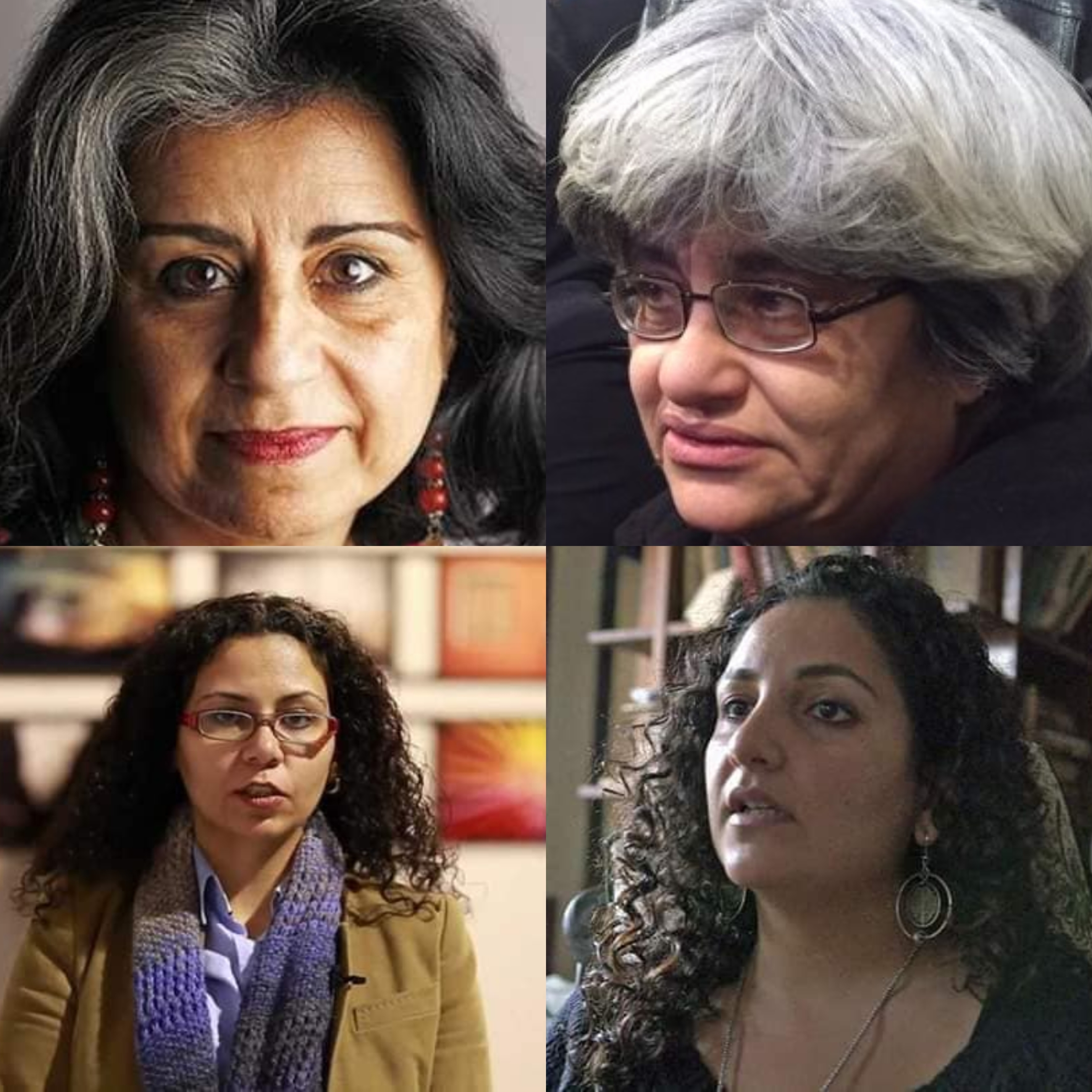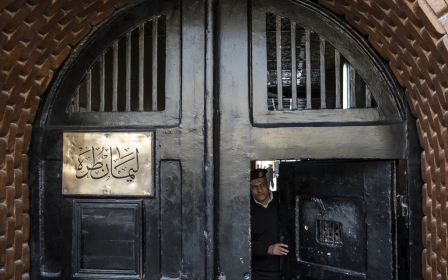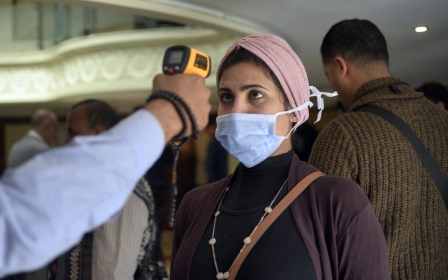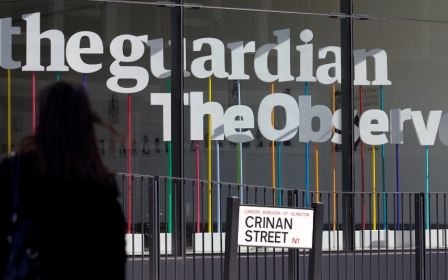Coronavirus: Egypt releases women who held protest demanding prisoner release

Egyptian authorities released four activists on Wednesday following a protest they held in Cairo, calling for the release of prisoners to prevent the spread of the coronavirus pandemic.
It comes as Egyptian prosecutors on Thursday ordered the release of 15 political dissidents, including a prominent academic arrested as part of a crackdown on nationwide protests in September.
Egypt has so far reported 210 cases of the virus and six deaths.
Novelist Ahdaf Soueif, her sister, Laila Soueif, Mona Seif, and political science professor Rabab el-Mahdy were picked up while protesting in front of the government headquarters in central Cairo earlier on Wednesday, after officers told them they were not allowed to protest.
The four women held posters with demands to release prisoners, including their family members held in pre-trial detention.
New MEE newsletter: Jerusalem Dispatch
Sign up to get the latest insights and analysis on Israel-Palestine, alongside Turkey Unpacked and other MEE newsletters
Ahdaf Soueif, Seif and el-Mahdy were released more than 12 hours after paying EGP 5,000 ($317) bail each, but Laila Soueif was released hours later and paid an additional EGP 3000 ($190) in bail related to another case.
She had been held longer for interrogations at the State Security Prosecution headquarters, her nephew, Omar Hamilton, has tweeted.
As his aunt was transferred from Qasr el-Nil prison to the police headquarters earlier, Hamilton said she shouted that she had been on a hunger and water strike since Tuesday.
Mona Seif, Laila Soueif’s daughter, is the sister of Alaa Abdel Fattah, a left-wing activist currently in pre-trial detention.
“We are in front of the cabinet headquarters, demanding the state take serious measures regarding the coronavirus crisis in Egyptian prisons,” Mona Seif said during the protest.
“We all know that Egyptian prisons are epicentres of diseases even in normal situations, with overcrowded cells, poor ventilation, and lack of sunlight,” she added.
Several human rights groups have called on Egyptian authorities to release prisoners temporarily as an urgent measure to prevent an outbreak of Covid-19 in the country’s notoriously overcrowded jails.
Human Rights Watch has estimated that more than 60,000 political prisoners languish in Egyptian jails since President Abdel Fattah el-Sisi came to power in 2014.
Sisi has routinely jailed critics, including secular and Muslim Brotherhood politicians, journalists, and human rights defenders. Hundreds have died in custody due to medical negligence or other poor detention conditions.
Dissidents released
Meanwhile, on Thursday, prosecutors ordered the release of 15 dissidents, including Cairo University political science professor Hassan Nafaa, 73, who was detained in September for criticising Sisi's performance amid a wave of nationwide anti-government protests.
Rights groups estimate that some 4,000 people were arrested, with hundreds later freed, as authorities moved to stem the protests, which followed calls by exiled Egyptian tycoon Mohamed Ali.
Thursday's list included Hazem Abdel-Azim, a former Sisi-loyalist who managed his 2014 electoral campaign before later attacking his policies.
According to the official National Council for Human Rights, police stations in 2015 were 300 percent overcapacity, and prisons were 160 percent overcapacity.
Amr Magdy, Middle East and North Africa researcher for Human Rights Watch, has urged Egyptian authorities to release those in pre-trial detention, those who served most of their sentences and the terminally ill, to prevent “a disaster” in the country’s prisons.
“Previous Human Rights Watch reports show that prison officials have 'let die' many prisoners in recent years, even though their illnesses were manageable, such as diabetes or heart conditions,” he wrote for Middle East Eye.
“Even those who were terminally ill because of advanced liver cirrhosis or metastatic cancers have been denied release, robbing them of the opportunity to rest and die among their loved ones,” he said in a column.
“If that’s already daily life in Egyptian prisons, then the system is definitely not prepared to face a pandemic such as coronavirus.”
Middle East Eye delivers independent and unrivalled coverage and analysis of the Middle East, North Africa and beyond. To learn more about republishing this content and the associated fees, please fill out this form. More about MEE can be found here.




